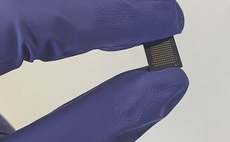Galaxy S5 security loophole exposed as Samsung claims that it is selling better than its predecessor
The fingerprint security feature of Samsung's new Galaxy S5 smartphone has been cracked within days - potentially exposing not just data on the device, but other services tied to the smartphone's f...
To continue reading this article...
Join Computing
- Unlimited access to real-time news, analysis and opinion from the technology industry
- Receive important and breaking news in our daily newsletter
- Be the first to hear about our events and awards programmes
- Join live member only interviews with IT leaders at the ‘IT Lounge’; your chance to ask your burning tech questions and have them answered
- Access to the Computing Delta hub providing market intelligence and research
- Receive our members-only newsletter with exclusive opinion pieces from senior IT Leaders























